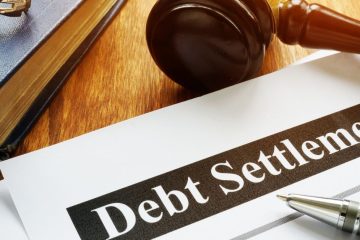As many people experience, it is easy to fall behind on taxes, beginning a slippery slope of increasing debt and risk. Everyone who has taxable income is required to file an annual tax return with the Canada Revenue Agency (CRA).
For the majority of the population who have a salaried income, with taxes deducted every payday by their employer, filing their tax return is something they look forward to. It means that they will likely have what are called “tax credits” which will result in the government returning to them some of the money that was deducted from their income during the previous calendar year. It feels like a bonus – it is not. It is just your money being returned to you.
However, for some people who operate a business, are retired and living on savings, or whose situation has changed during the year, filing your return can trigger more tax owing. Filing the return is required even if you cannot pay the taxes owing! Because penalties and interest start to accumulate almost immediately, you may find yourself in a rapid downward spiral.
What to do if you find yourself behind in taxes
First, file the tax return even if you cannot afford to pay what will be owing. Failing to file creates even more problems and not filing returns can be considered income tax evasion.
Second, look at the cause of the CRA shortfall. If you are going to owe money again in the current year, you need to immediately plan for how you will be paying that. If quarterly installments are required, your first priority will be setting those up to ensure that you do not fall further into tax debt. Interest rates from CRA have increased in 2024, and interest is now charged as soon as you miss your first installment for the current year.
Third, if the amount owing is relatively small, and you can reasonably pay it off over the next year, you might work out a payment plan with CRA. They will sometimes agree to limit the penalties if you have a reasonable plan to pay the money back. You will need to budget carefully to make sure that you can make the payments either monthly or quarterly – and on time. Small tax debts can often be dealt with in this manner, particularly if it is a one-time situation and you do not have ongoing quarterly tax commitments.
What to do if you have significant tax debt
If you have a large tax debt, you need to seek the help of an expert. The good news is that tax debt can be solved through federal legislation, under the Bankruptcy and Insolvency Act of Canada. Either a Consumer Proposal or a Bankruptcy could be the right solution. Reviewing the details of your situation with a Licensed Insolvency Trustee (LIT), such as LCTaylor, can show you how to eliminate tax debt as well as other liabilities.
Your LIT can design a Consumer Proposal that will satisfy both you and your creditors. The Consumer Proposal will allow you to pay a smaller amount over a few years (maximum 5 years), to get rid of your entire tax debt. You pay based on your ability to pay, rather than the full amount of the debt. Penalties are eliminated and interest is frozen.
Because of their extensive experience in negotiating with CRA, the Trustee can help you design a proposal that CRA will accept. Once accepted, the proposal is binding on all parties and creditors, including CRA, cannot continue collections.
Your LIT will also explain how a Bankruptcy would work. This solution has the same protections as a proposal, in that collections are ceased, and payments are based on your ability to pay. Depending on your particular situation, Bankruptcy is sometimes the best course of action. It is usually finished more quickly than a proposal, and may cost you less in payments to your creditors. Your LIT will explain both options in detail, along with the pros and cons of each, to help you find the solution that fits you best.
This podcast explores the steps you can take if you have tax debt you are unable to manage.
How is being self-employed different?
If you are self-employed, you may be subject to different taxes, such as unremitted source deductions and GST/PST. The rules vary depending on whether you are self-employed or have a partnership or a corporation. Your LIT can sort through all that with you and help you find the right solution. Because there are a number of possible structures to the business, there are multiple solutions that you will want to review with your LIT.
What happens if I just ignore the CRA debt?
Ignoring the problem will result in CRA taking serious steps. They can:
- Garnish wages
- Seize your assets
- Put a lien on your house, and eventually seize and sell it.
- Seize bank accounts
- File criminal charges against you for income tax evasion
CRA doesn’t quit.
How do I get started?
First, contact a firm that can handle the full range of solutions. Your accountant, credit counsellor, or even firms that operate solely over the internet cannot offer the full range of alternatives that a local LIT, like LCTaylor, can offer.
Tax debt has some serious consequences, so you need to be able to deal directly, and where possible, in person with the LIT. There are a lot of details to discuss and a wide range of solutions. If someone offers you only one solution, you are talking to the wrong person.
Like most complicated problems the right solutions require experience and expertise. As they say, “the devil is in the details”. At LCTaylor, we will sit down with you and clearly outline the options that are available in your situation. We will meet with you, free of charge, as many times as necessary to ensure that you find the right solution for your unique situation – a solution that is in your best interests. You can be confident that the plan we work out with you will be achievable and will get you back on your financial feet.
A last word of caution: Be careful about solutions that are too good to be true. Often firms that offer those solutions ask for payments up front and then drop you once their quick fix falls through. Find out who they are. Are they actually local, qualified and experienced? Are they licensed and regulated by the federal government?
Tax debt is serious and sometimes complex. It needs to be dealt with seriously. The good news is that there are affordable solutions. Give us a call at 204-925-6400 to set up a meeting, or visit us at LCTaylor.com.
















